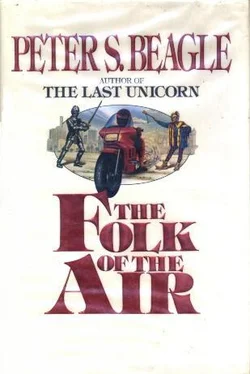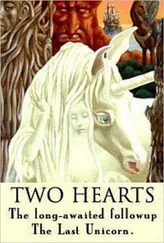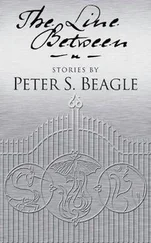“Another rememberer,” Farrell said. “We are well met.” Only the chestnut eyes showed the least reaction to Nicholas Bonner’s words.
Hamid said lightly, “Beats teaching. I guess I could have taught all that stuff I know somewhere, but I never wanted to. I didn’t learn it to teach. I just wanted to be it, which is hard to explain to people.” He began walking again, glancing sharply sideways at Farrell. “Like you and the lute, yes?”
“Like me and the lute,” Farrell said. “Like Aiffe and witchcraft, yes?”
Hamid did not answer until they had almost reached the clearing. There was a new dance going on, a branle by the music and the scrambling laughter. Hamid said finally, “Well, that’s a role too, same as a bard or a troubadour. Hyperborea, up in Sacramento, they’ve got one lady who’s into wicca , the Old Religion, whatever you want to call it. Looks like a filing cabinet and makes witchcraft sound like organic mulching. The Kingdom Under the Hill has witches up the yingy, mostly reading auras, predicting earthquakes. We’ve got Aiffe.” He hesitated, letting go of Farrell’s arm to concentrate on resettling his handsome indigo turban. “Now I don’t know what you saw her fooling with back there—”
“That’s the trouble,” Farrell said sadly. “I do.” The Saracen was definitely walking faster now, making for the dancers, and Farrell lengthened his own stride to keep up. He said, “Hamid, we don’t know each other, I’m just passing through, this is not my concern. But what you guys have there is no cultural-anthropology drop-out planting string beans naked in the full moon. What you have there is Baba Yaga.”
Hamid snorted without looking at him. “Man, Aiffe’s like a mascot, she grew up with the League. She’s been playing sorceress since she was a little kid.”
“I think she’s about got it down.” Farrell said. “Look, I would really, truly like very much to believe that she and her boyfriend were rehearsing the class play, or even getting in shape for some local fertility ritual. Or that I was hallucinating somehow, or just getting it wrong, the way I do.” He caught hold of Hamid’s white linen robe to stop him for a moment. “But this one time I can’t talk myself into it. I know what I saw.”
At the tug on his robe Hamid turned swiftly and struck Farrell’s hand away, saying with a sudden menacing sweetness, “Don’t grab at a bard, you don’t do that ever .” There was nothing of the scholar, the clown or the courtier about him now; he might have been a desert priest, like a brown snarl of barbed wire, confronting true blasphemy. He whispered, “You don’t known what you saw. Believe me.” Farrell could barely make out his words under the music. Hamid said, “She shows off, that’s all, she likes attention. She’s fifteen years old.”
“The real witches and wizards were probably young,” Farrell said thoughtfully. “I never wanted power as much as I did when I was fifteen.” But Hamid was gone, abruptly vanished into a glowing tumble of dancers who overflowed the clearing and spilled around Farrell, gasping and whooping and falling down. Garth de Montfaucon stalked by, mantis-graceful, mannerly as death. Farrell nodded slightly, and Garth smiled like a zipper and moved on along the way Farrell had come.
Julie was standing near the musicians’ dais, talking with the Lady Criseyde, but she went to Farrell as soon as she saw him and hugged him quickly. “Where have you been?” she asked. “I was worried, where did you go?”
“Just walking a little,” Farrell said. “I’m sorry, I should have told you.”
“I didn’t know where you’d disappeared to,” she said. “You were just gone suddenly, and so was she—Aiffe—and Garth’s been sliding around everywhere like butter in a skillet, really hunting for her. I thought you might have gotten kidnapped; somebody might have been sacrificing infants. Virgins.” She laughed, but there was a shivering tinfoil sound to it, and she was slow to let go of him.
“Mostly I was hunting for Ben.” He hesitated, trying to find a way to begin telling her about the laughter under the trees. The Lady Criseyde said, “If you seek the Viking Eyvindsson, you might do well to find my own lord, the Falconer. They two are as near to being companions as Egil will allow.” She had a low, precise voice and the wary grace of a creature hunted only in certain seasons.
“I’ll check,” Farrell said shortly, startled to feel a mean high-school squeeze at the thought of Duke Frederik being Ben’s preferred friend in this world. He said, “Tanikawa, Jewel, I have to talk to you,” but both Julie and the Lady Criseyde were staring past him, unhearing, leaning forward with their mouths slightly open. Farrell turned, knowing what he was going to see and hoping he was wrong.
A little way from them, the girl Aiffe was leading a boy of her own age into line for a new pavane. He was as slender as she and perhaps half a head shorter, but he carried himself with a bold lilt that made him appear to look down at her. In the torchlight, his hair was impossibly yellow—dandelion-thick, so ridiculously, insultingly rich and molten as to make the moon look like pale margarine—though his skin was a smooth, sallow, olive color. He was dressed all in green, from his surcoat to his hose, wide belt, and shoes, and Farrell thought inanely, Of course, if she can call him here from wherever he was, she can damn sure put some clothes on him . Aiffe was smiling, holding the boy’s arm tightly with both hands.
The Lady Criseyde said softly, “Now that’s none of ours, that’s no child I’ve seen before.” The yellow-haired boy whispered to Aiffe, making her giggle and rub her shoulder against his. They had a curious air of brother and sister about them; they might have been conspiring to play a trick on a roomful of overfed uncles and aunts. Aiffe could not stop smiling.
“The Kingdom Under the Hill,” Julie suggested. “They turn up here all the time.” The musicians began to play Cutting’s Pavane far Mistress Knollys , and Nicholas Bonner made a reverence to Aiffe that reminded Farrell of the tense little wriggle of a flame. She snickered again and curtsied like a stork settling down on a chimney.
The Lady Criseyde had slipped away to pick up her drum and join the music. Julie moved close to Farrell, taking his hand. Nicholas Bonner danced with Aiffe like a flame taking a deeper, brighter hold on a log, digging in. As grave and demure as his dance was, Farrell could feel the sweet, burning laughter crackling in each movement, barely contained, roiling joyously under the solemn skin of the pavane. He heard the terrible thankfulness as well, and the husky voice greeting itself under the trees: “ Arms, legs, senses, fancies, follies …”
“He’s not from California,” he said. “Believe me.” When he turned to Julie, her face was the color of city ice. Farrell raised the hand she was gripping to touch her cheek and felt her grinding her teeth in a failing effort to keep them from chattering. He said, “Jewel,” but she would not look at him.
The pavane ended, and Nicholas Bonner quickly imitated the other dancers’ grand reverence to the musicians; but Aiffe, as before, remained insolently erect, even tugging at Nicholas Bonner’s hand to pull him up again. Abruptly she released him and came walking straight toward the dais where Farrell stood with Julie. Nicholas Bonner followed at the pace of the pavane, still dancing serenely by himself. Aiffe stopped before Farrell and grinned at him, pushing her hair back from her shiny forehead.
“Hey, you are just fantastic,” she said. “I didn’t get a chance to tell you. You are just a fantastic musician.” She punched his arm clumsily.
Читать дальше












